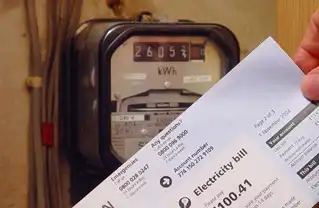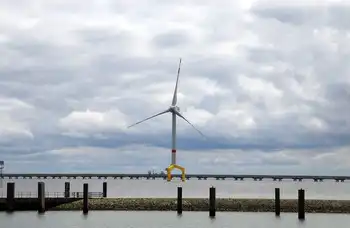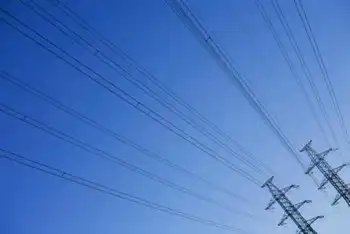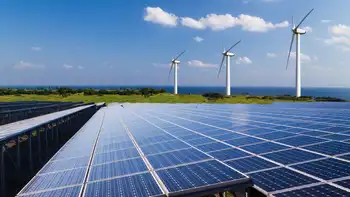Wind delivering benefits to B.C.
By Vancouver Sun
Protective Relay Training - Basic
Our customized live online or in‑person group training can be delivered to your staff at your location.

- Live Online
- 12 hours Instructor-led
- Group Training Available
The introduction of the Clean Energy Act reflects the province's strong support for investment in a clean, renewable and low-impact electricity system. The fastest growing source of new electricity around the world, wind energy proved its viability in the British Columbia market through BC Hydro's 2010 competitive call for clean power, with contracts for six projects totaling 534 MW of capacity. This new capacity will build on the $1.7 billion in new investment and 690 MW of new wind energy capacity installed across Canada in 2010.
Wind energy in Canada has increased almost tenfold in the last six years as governments seek ways to meet rising energy demand, reduce the environmental impacts of electricity generation and stimulate rural and industrial economic development. Canada's total installed wind energy capacity is now 4,008 MW, which is enough to provide electricity that would meet the needs of more than 1.2 million homes.
Ontario is the current provincial leader with roughly one-third of the county's wind energy development. Alberta and Quebec combined follow with approximately another third of capacity and the remaining seven provinces share the rest.
Policy development in all provinces is feeding this rapid growth. In 2009, the Ontario government introduced Ontario's new Feed-in Tariff FiT program under the Green Energy and Economy Act, the first of its kind in North America. Nova Scotia's new energy policy, released in 2010, creates a mandatory target of supplying 25 per cent of the province's electricity needs from renewable sources by 2015 and a goal of boosting that to 40 per cent by 2020. At the close of 2010, Hydro-Quebec announced the results of a unique tendering process for 500 MW of wind energy from first nations and regional municipalities that will help meet Quebec's ambitious objective of 4,000 MW of wind energy by 2015. These policy initiatives allow for the stable and sustained growth of an industry that through economies of scale will reduce the infrastructure and operations costs of this new technology over time.
The prospects for Canada's wind energy industry over the next few years are very promising and Canada is still only scratching the surface of its enormous wind energy potential and the economic benefits that will result.
To achieve these benefits, policymakers must ensure electricity markets incorporate the costs of environmental impacts from all sources of electricity generation, establish long-term targets and stable and sustained policies supporting wind energy to make Canada an internationally competitive destination for investment and facilitate the planning and build out of "wind friendly" transmission.
There is no doubt that 2010 has been another strong year for the wind energy industry in Canada.
With more than 1,000 MW likely to be installed in 2011, a record year is likely. In broad terms, each 1,000 MW of new wind energy creates about $2.75 billion in private sector investment, about 1,000 jobs and enough clean electricity to power more than 300,000 homes. It also can generate more than $3 million per year in lease payments to farmers and other landowners, and more than $3 million per year in new tax revenues for municipalities.











